
Macas: The Gateway to Ecuador's Amazon
Nestled in the eastern foothills of the Andes, Macas offers a unique blend of natural beauty and cultural richness. Known as the Gateway to the Amazon, this picturesque city is surrounded by lush rainforests, stunning waterfalls, and winding rivers. The biodiversity here is incredible, making it a perfect destination for nature lovers and adventure seekers alike. In Macas, you can explore the Shuar culture and learn about their traditions and way of life. Visits to local communities offer a glimpse into their ancient customs, including their famous blowgun hunting techniques and traditional dances. The city's vibrant markets are also a must-see, where you can find handmade crafts and taste exotic fruits from the Amazon. For outdoor enthusiasts, Macas offers numerous hiking trails, river rafting, and bird watching opportunities. The Sangay National Park, a UNESCO World Heritage site, is just a short trip away and boasts stunning landscapes and diverse wildlife. Whether you're looking to relax in nature or immerse yourself in local culture, Macas has something for everyone.
Local tips in Macas
- Visit the local markets early in the morning for the freshest produce and handmade crafts.
- Carry insect repellent and wear long sleeves and pants to protect yourself from mosquitoes, especially in the rainforest.
- Hiring a local guide can enhance your experience when exploring the Shuar communities and the rainforest.
- Check the weather forecast before planning outdoor activities, as the region can experience sudden rain showers.
- Respect local customs and traditions when visiting indigenous communities. Always ask for permission before taking photos.
Macas: The Gateway to Ecuador's Amazon
Nestled in the eastern foothills of the Andes, Macas offers a unique blend of natural beauty and cultural richness. Known as the Gateway to the Amazon, this picturesque city is surrounded by lush rainforests, stunning waterfalls, and winding rivers. The biodiversity here is incredible, making it a perfect destination for nature lovers and adventure seekers alike. In Macas, you can explore the Shuar culture and learn about their traditions and way of life. Visits to local communities offer a glimpse into their ancient customs, including their famous blowgun hunting techniques and traditional dances. The city's vibrant markets are also a must-see, where you can find handmade crafts and taste exotic fruits from the Amazon. For outdoor enthusiasts, Macas offers numerous hiking trails, river rafting, and bird watching opportunities. The Sangay National Park, a UNESCO World Heritage site, is just a short trip away and boasts stunning landscapes and diverse wildlife. Whether you're looking to relax in nature or immerse yourself in local culture, Macas has something for everyone.
When is the best time to go to Macas?
Iconic landmarks you can’t miss
Parque Central De Macas
Experience the natural beauty and cultural richness of Parque Central De Macas, a serene park nestled in the heart of Ecuador's vibrant Macas.
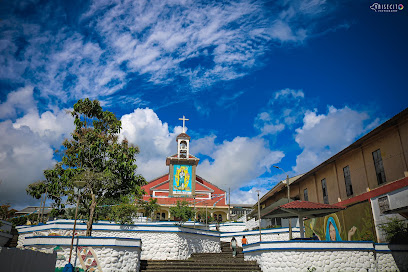
Parque Recreacional
Experience the beauty and leisure of Parque Recreacional, Macas - a perfect getaway for nature lovers and families seeking fun activities.
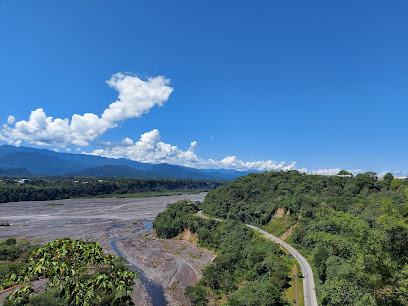
Mirador del Quilamo
Discover the breathtaking beauty of the Andes at Mirador del Quilamo, the perfect observation deck in Macas, Ecuador for panoramic views and unforgettable experiences.
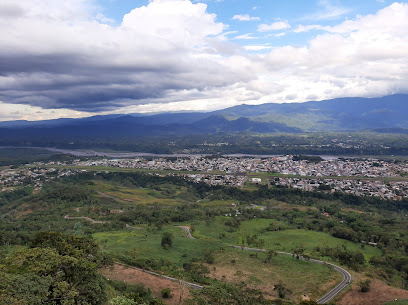
Catedral Santuario Católico Purísima de Macas
Explore the breathtaking Catedral Santuario Católico Purísima de Macas, a stunning architectural marvel and vibrant center of cultural heritage.
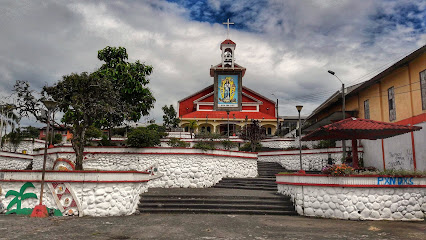
Hostal Casa Blanca
Discover the charm of Macas at Hostal Casa Blanca, where comfort meets Ecuadorian hospitality in a tranquil setting.
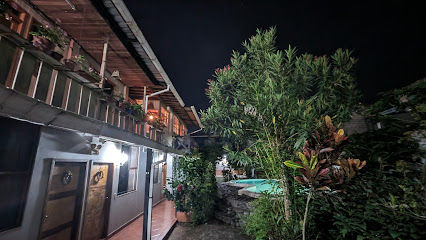
Hotel Manzana Real
Discover the comfort of Hotel Manzana Real in Macas, Ecuador—your ideal extended stay hotel for exploring lush landscapes and vibrant culture.
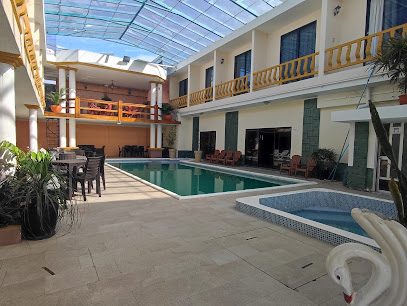
Spa Savit
Discover tranquility at Spa Savit, Macas' premier destination for relaxation and rejuvenation, offering luxurious treatments in a serene setting.
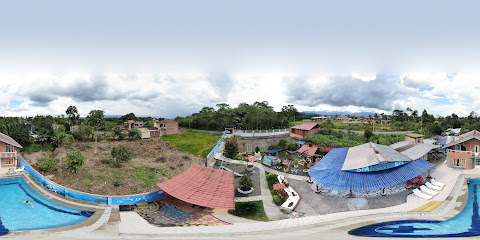
Hotel Heliconia
Experience the heart of Macas at Hotel Heliconia, where comfort meets local charm in the stunning landscapes of Ecuador.
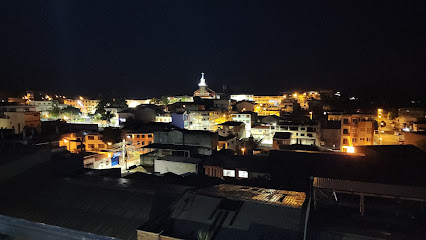
Hostal Morzua
Discover the charm of Macas at Hostal Morzua, where comfort meets local culture in a cozy bed and breakfast setting.
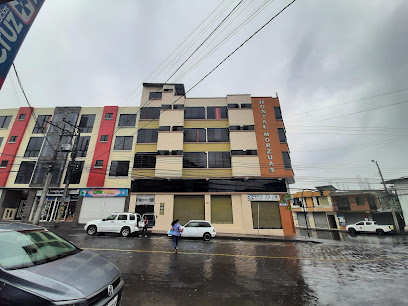
Centro de Rescate Los Jaguares
Experience the heartwarming stories of rescued wildlife at Centro de Rescate Los Jaguares, where conservation meets education in the heart of Ecuador.
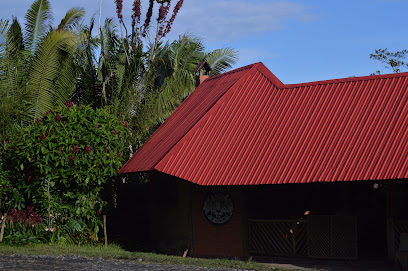
MUNICIPAL GOVERNMENT OF CANTON MORONA
Experience the vibrant culture and civic life at the Municipal Government of Canton Morona in Macas, Ecuador.
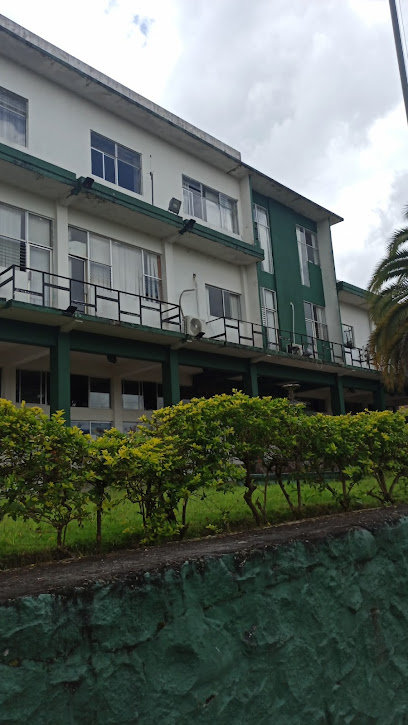
Monumento a los macabeos
Discover the Monument to the Maccabees in Macas, Ecuador, a symbol of cultural resilience and history amidst stunning natural landscapes.
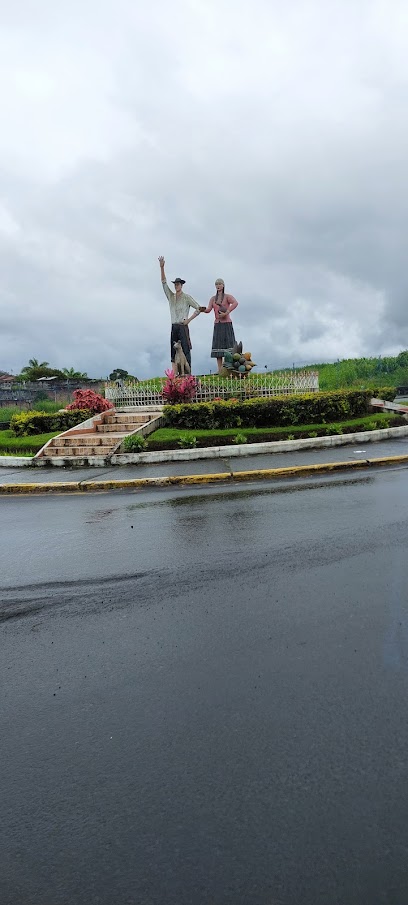
Ministerio de Turismo de Morona Santiago
Explore the vibrant culture and breathtaking landscapes of Morona Santiago at the Ministerio de Turismo, your gateway to unforgettable adventures.
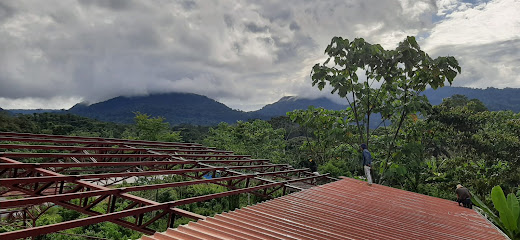
I Tur Macas
Discover the heart of Ecuador at I Tur Macas, your essential tourist information center for exploring Morona Santiago's stunning landscapes and rich culture.
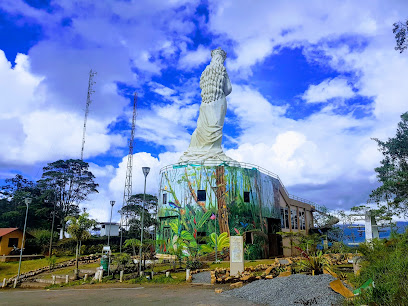
Travesía Jungle Agencia de Viajes & Operadora de turismo
Discover the lush jungles and cultural treasures of Ecuador with Travesía Jungle, your ultimate travel companion for unforgettable adventures.
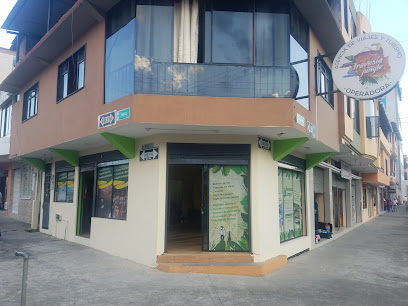
Unmissable attractions to see
Parque Central De Macas
Explore the beauty and culture of Macas at Parque Central De Macas, a serene park filled with lush greenery and vibrant local life.
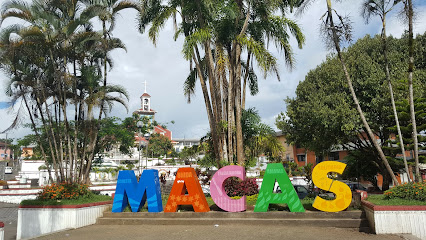
Parque Recreacional
Discover the beauty and tranquility of Parque Recreacional, a lush oasis in Macas, Ecuador, perfect for relaxation and outdoor activities.
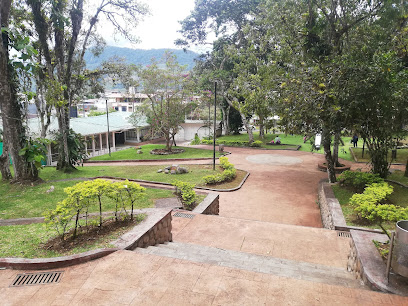
Mirador del Quilamo
Experience the breathtaking views and serene landscapes at Mirador del Quilamo, a must-visit observation deck in Macas, Ecuador.
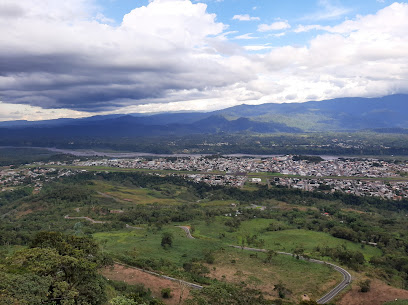
Catedral Santuario Católico Purísima de Macas
Explore the breathtaking Catedral Santuario Católico Purísima de Macas, a stunning architectural gem surrounded by lush landscapes and rich local culture.
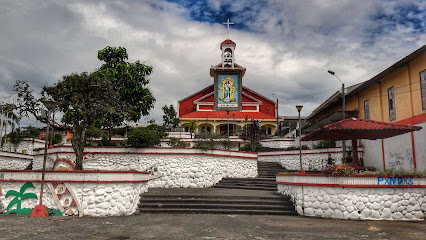
Balcon del Rio
Discover the breathtaking views and cultural charm of Balcon del Rio in Macas, Ecuador's picturesque Amazon region.
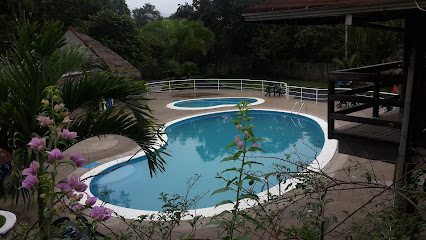
Cascada Hola Vida
Discover the breathtaking beauty of Cascada Hola Vida in Puyo, Ecuador, a natural wonder surrounded by the lush Amazon rainforest.
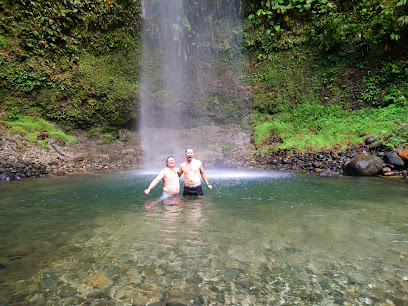
Cascadas Kintia Panki
Explore the breathtaking beauty of Cascadas Kintia Panki, a hidden gem in Ecuador featuring stunning waterfalls and lush landscapes, perfect for nature lovers.
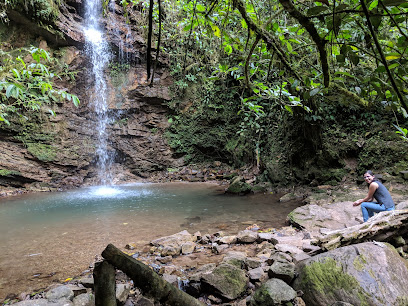
Finca el Piura
Experience the serene beauty of Finca el Piura, a charming farmstay in Morona-Santiago offering camping, farm activities, and breathtaking natural landscapes.
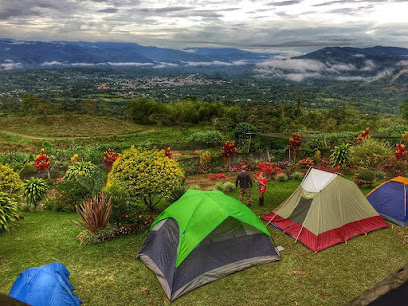
Mirador.
Explore the vibrant wildlife and lush landscapes of Mirador, a conservation gem in Macas, Ecuador, perfect for families and nature lovers.
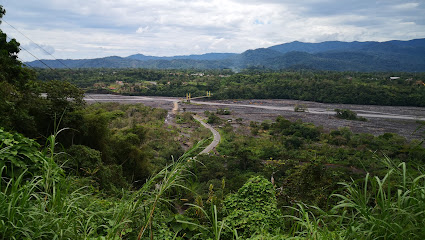
Monumento a los macabeos
Explore the Monument to the Maccabees in Macas, a captivating tribute to resilience and history amidst breathtaking landscapes.
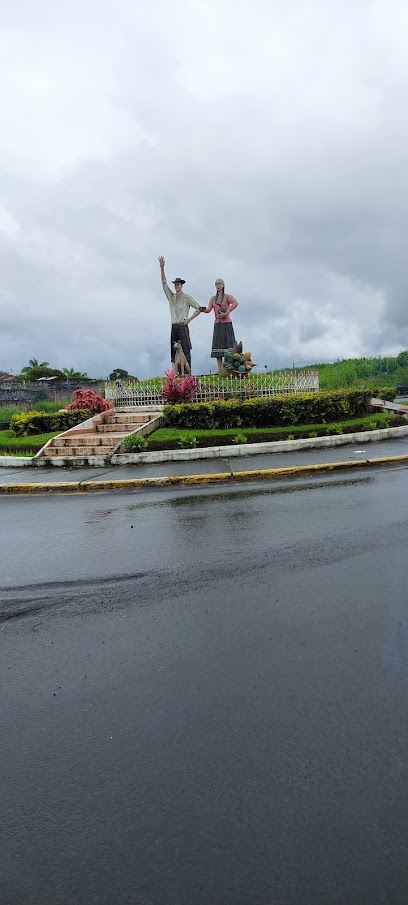
Rio Copueno
Explore the breathtaking beauty of Rio Copueno, a natural paradise in Macas, Ecuador featuring stunning landscapes and rich biodiversity.

Mirador La Randimpa
Discover unparalleled views of the Andean landscape at Mirador La Randimpa, a must-visit observation deck in Macas, Ecuador.
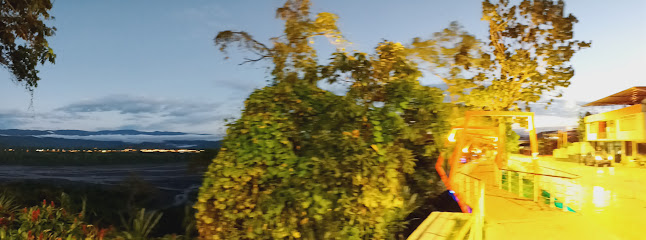
pueblo shuar
Explore Pueblo Shuar: A vibrant cultural hub in Ecuador showcasing the traditions of the Shuar people amidst stunning natural landscapes.
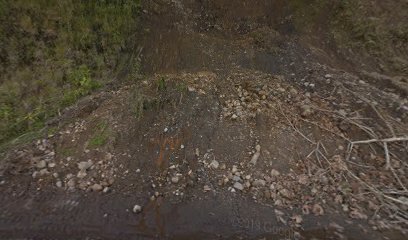
Caverna del Macabeo de Piedra
Explore the enchanting Caverna del Macabeo de Piedra, a breathtaking natural wonder near Macas, Ecuador, showcasing stunning rock formations and rich biodiversity.

civico de Macas Park
Experience tranquility and nature at Civico de Macas Park, a lush green escape in the heart of Macas, Ecuador.
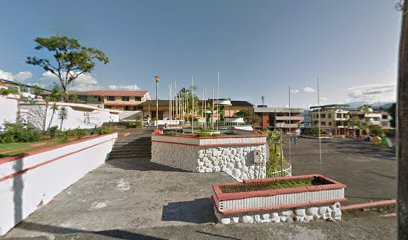
Essential places to dine
Pizzeria La italiana
Experience authentic Italian flavors at Pizzeria La Italiana in Macas – where every slice tells a story.
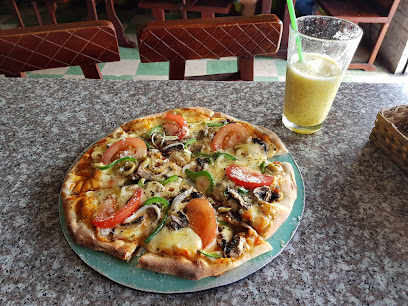
Cafe Julieta
Discover authentic Ecuadorian flavors at Café Julieta in Macas - a culinary haven offering delicious dishes and a warm atmosphere.
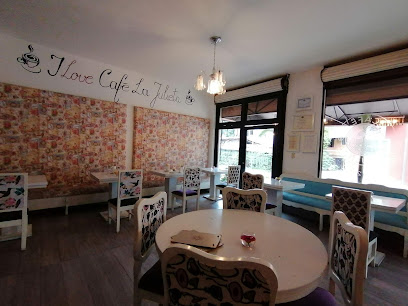
La Vaca Estriada Parrilla Argentina
Savor authentic Argentinian cuisine at La Vaca Estriada Parrilla in Macas—where tradition meets flavor in every bite.
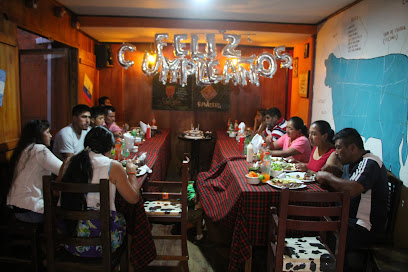
Restaurante Special Steack house Pizzería
Experience delicious grilled specialties and delightful pizzas at Restaurante Special Steack house Pizzería in Macas – a culinary highlight for every traveler.
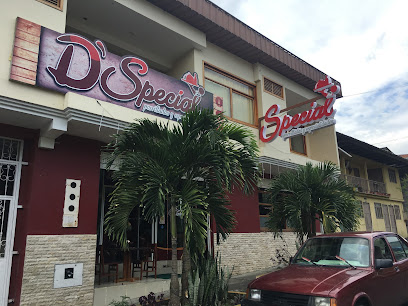
Boomerang
Experience culinary excellence at Boomerang in Macas - where local flavors meet relaxation by the swimming basin.
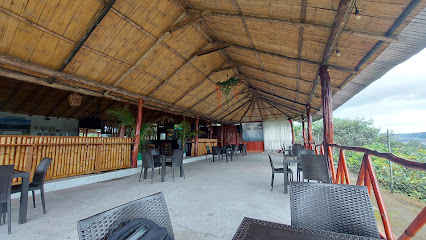
M-eat food & grill
Discover authentic Ecuadorian flavors at M-eat Food & Grill in Macas - where every bite tells a story.
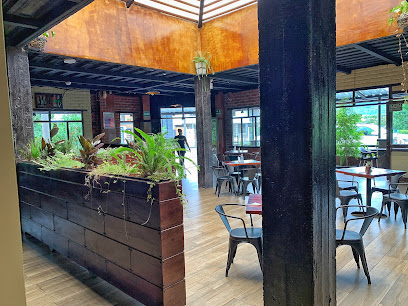
Mamma Luna
Discover authentic Ecuadorian flavors at Mamma Luna in Macas – where every meal tells a story.
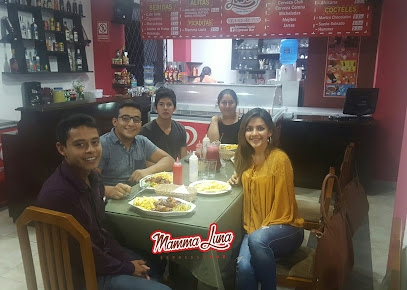
Bar & Restaurante El Mirador
Experience the best of Ecuadorian cuisine at Bar & Restaurante El Mirador with stunning views and a welcoming atmosphere.
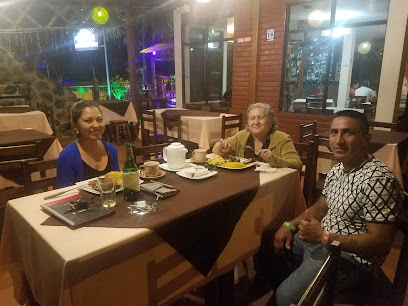
El Rock Garden
Discover El Rock Garden: A lively restaurant in Macas offering delicious food and drinks in an energetic atmosphere perfect for tourists.
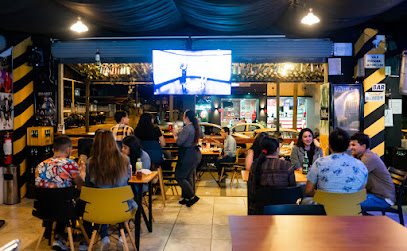
Tishos Restaurant
Discover authentic Italian flavors at Tishos Restaurant in Macas—where every pizza is crafted with love using fresh local ingredients.
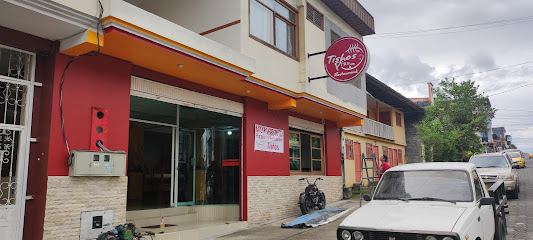
Nunkui_Ec
Discover the essence of Ecuadorian cuisine at Nunkui_Ec in Tarqui, Macas – where every dish tells a story.
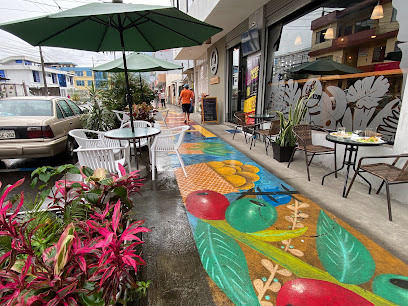
La Estancia Restaurante Macas
Experience authentic Ecuadorian cuisine at La Estancia Restaurante Macas, where local flavors meet warm hospitality in a vibrant setting.
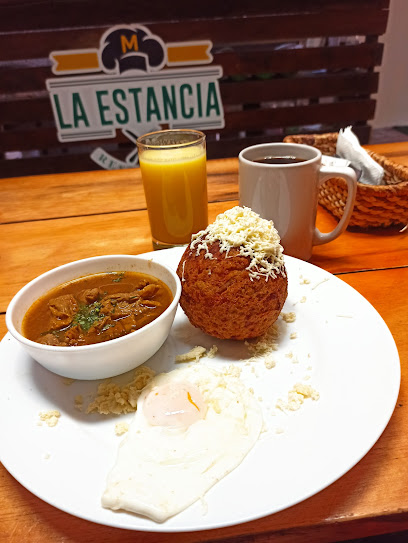
Kenku Bar restaurante
Savor the vibrant flavors of Ecuador at Kenku Bar Restaurante in Macas—where culinary traditions meet modern tastes.
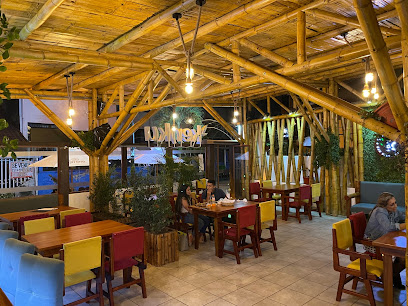
Lua Restaurante
Discover Lua Restaurante in Macas: A vibrant gastropub offering innovative local cuisine and a welcoming atmosphere for all food lovers.
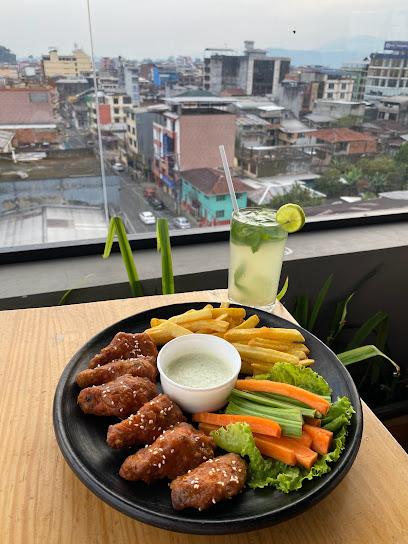
Tiro Loco
Experience authentic Ecuadorian flavors at Tiro Loco in Macas – where every meal is a celebration of local cuisine.
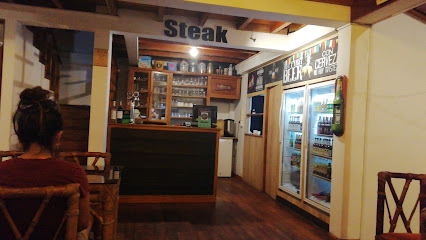
Markets, malls and hidden boutiques
Artefacta
Explore Artefacta in Macas for top-notch appliances and local craftsmanship, perfect for souvenirs or home essentials.
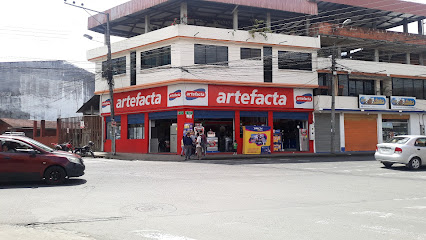
THANI - TIENDA A GRANEL.
Explore THANI - Tienda a Granel in Macas for an organic shopping experience that supports local farmers and promotes sustainable living.
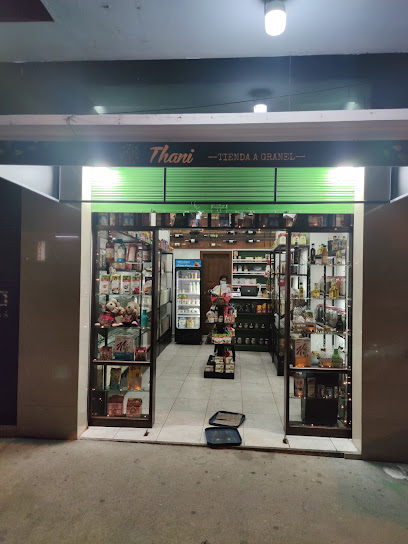
CENTRO COMERCIAL FANTASIAS / Papelerias - Librerias - Bazar en Macas
Explore Centro Comercial Fantasias in Macas - A vibrant shopping destination showcasing local crafts, diverse shops, and delicious Ecuadorian cuisine.
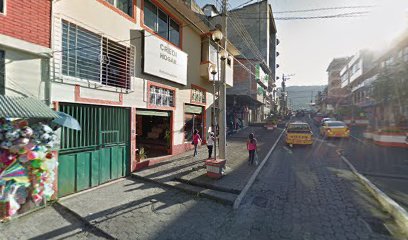
Almacen cuenquita
Explore Almacen Cuenca: Macas' premier electronics store at Terminal Terrestre, offering a wide range of gadgets and accessories for all your tech needs.
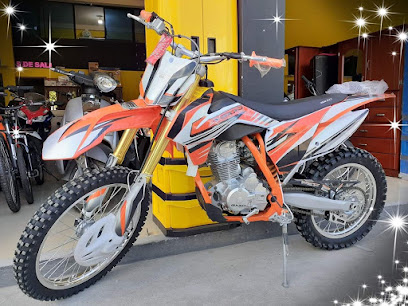
Piecitos
Explore the vibrant clothing store Piecitos in Macas, where local fashion meets unique craftsmanship for an unforgettable shopping experience.
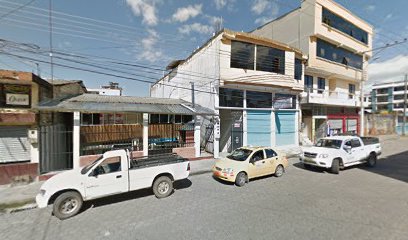
SECRETO DE MUJER
Explore Secreto de Mujer in Macas for trendy fashion that embodies local culture and style.
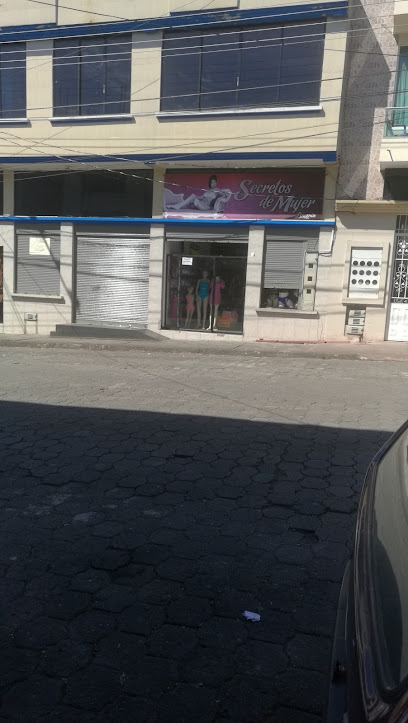
Emporio Comercial
Explore the vibrant Emporio Comercial in Macas, Ecuador - a bazaar of unique paper crafts and authentic local culture.
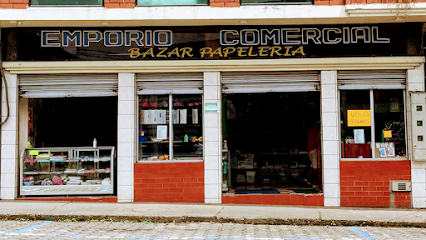
BETO STORE Macas
Explore Beto Store in Macas for unique handcrafted treasures and local art that embody the rich culture of Ecuador.
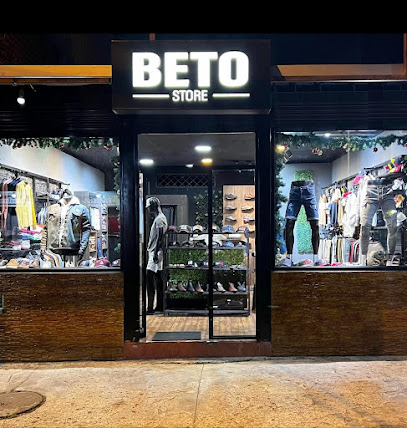
Le Coquette Valery Boutique
Discover unique clothing and accessories at Le Coquette Valery Boutique, the fashion gem of Macas, Ecuador, blending local culture with contemporary style.
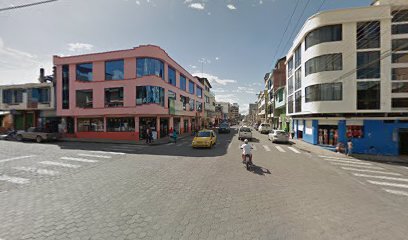
Totto
Discover stylish clothing and unique fashion finds at Totto in Macas, Ecuador, where quality meets affordability in a welcoming atmosphere.
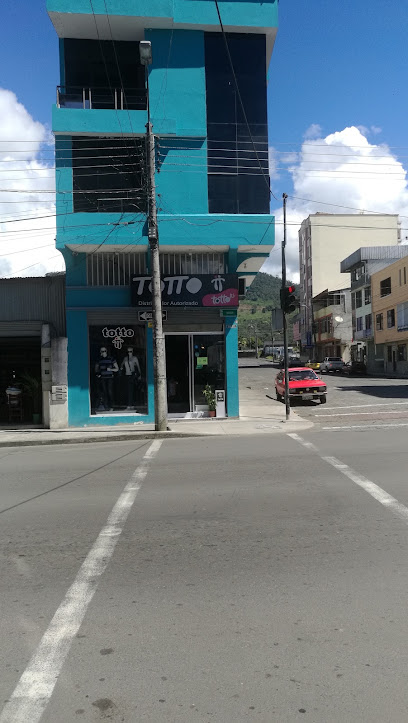
HONEY LIFE, Tienda Ecológica Naturista
Explore HONEY LIFE, Tienda Ecológica Naturista in Macas - Your go-to health food store for organic delights and eco-friendly products.
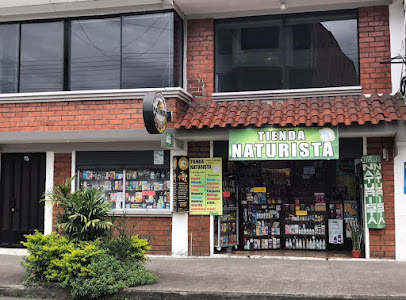
Mega Regalon
Explore Mega Regalon in Macas for unique clothing that reflects Ecuador's vibrant culture, perfect for tourists seeking local style and fashion.
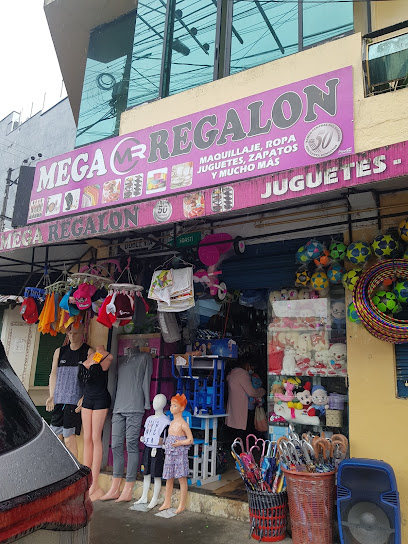
Beautiful Shopping
Explore the vibrant fashion scene at Beautiful Shopping in Macas, where local craftsmanship meets unique style for every traveler.
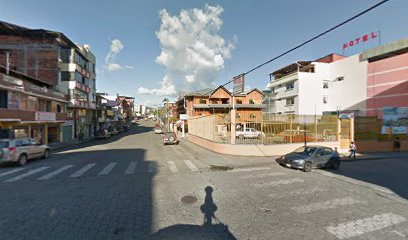
MAXIMODA Macas Morona Santiago
Explore the latest in youth fashion at MAXIMODA, Macas, a vibrant destination for trendy clothing and local styles in Ecuador's beautiful Andes.
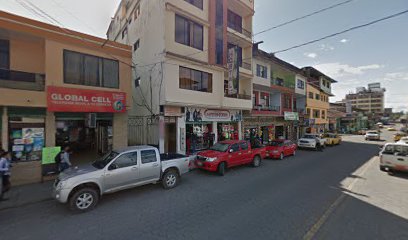
Angel & Rose
Explore the heart of Macas at Angel & Rose, a delightful general store filled with local treasures and artisanal goods.
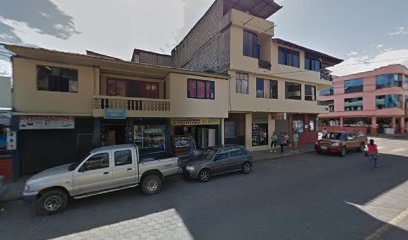
Essential bars & hidden hideouts
Bar-restaurante La Terraza del Angel
Experience the vibrant culinary scene at La Terraza del Angel, a dynamic bar-restaurant in Macas offering local flavors and refreshing drinks.
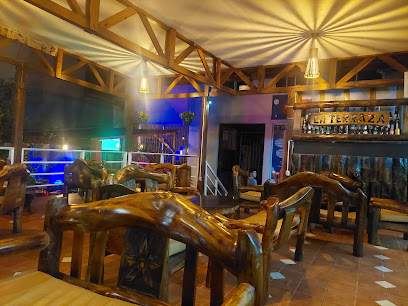
El Rock Garden
Experience the lively ambiance and exquisite local cuisine at El Rock Garden in Macas, Ecuador – a must-visit for every traveler.
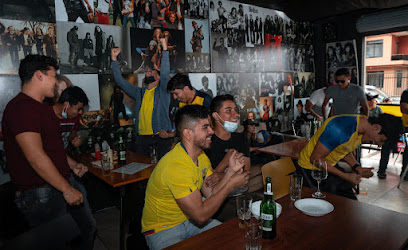
Karaoke Bar La Noche
Experience the vibrant nightlife and infectious energy at Karaoke Bar La Noche in Macas, where singing and fun come together.
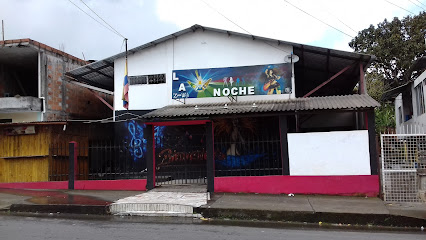
Kevin's Bar
Experience the essence of Macas at Kevin's Bar, a lively spot for drinks, local flavors, and unforgettable nightlife.
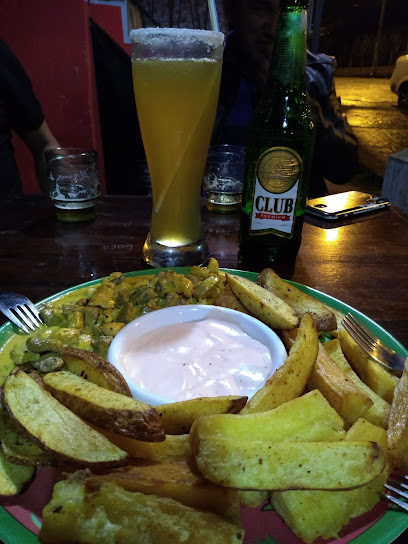
Barbasco Bar Discotek
Discover the lively atmosphere and vibrant nightlife of Barbasco Bar Discotek in Macas, Ecuador, where unforgettable nights await.
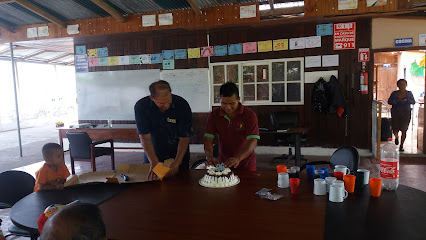
Tentation Bar Karaoke
Experience the vibrant nightlife at Tentation Bar Karaoke in Macas, Ecuador, where music and fun collide for an unforgettable evening.
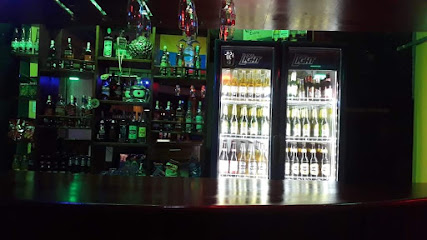
BLACK ANT
Experience the best of Ecuadorian cuisine and craft beer at BLACK ANT, a must-visit gastropub in Tarqui, Macas.
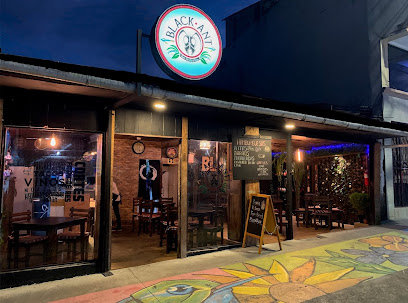
Eclipse Bar Karaoke
Experience the vibrant nightlife of Macas at Eclipse Bar Karaoke, where grilled delights and unforgettable karaoke nights await every visitor.
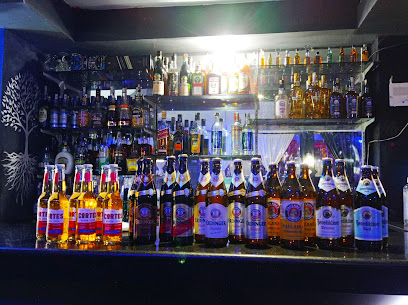
CKRETOS
Experience the energetic nightlife of Macas at CKRETOS, a lively bar offering a wide range of drinks in a vibrant atmosphere.
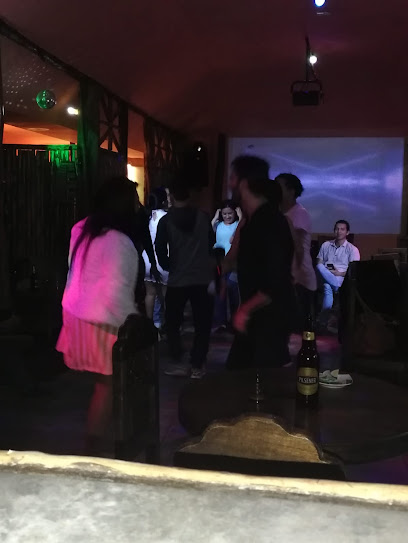
EL ÁRBOL Food, Music & Pub
Discover the vibrant nightlife of Macas at EL ÁRBOL Food, Music & Pub, where excellent food and live music create unforgettable experiences.
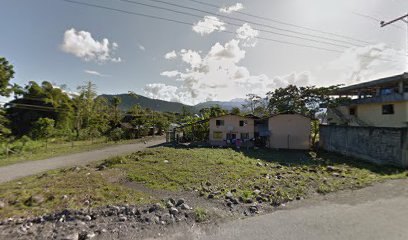
Bar Karaoke La Barra
Experience the vibrant nightlife of Macas at Bar Karaoke La Barra, where every night is a musical celebration filled with fun and laughter.
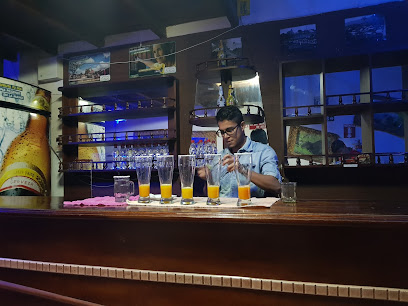
El Gonza Restobar
Experience the vibrant nightlife of Macas at El Gonza Restobar, where local culture meets refreshing drinks in a lively atmosphere.
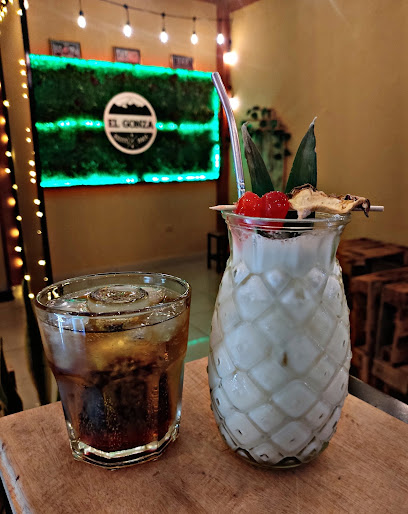
Coctelitos Macas
Experience the vibrant nightlife at Coctelitos Macas, where delicious cocktails and a lively atmosphere await you.
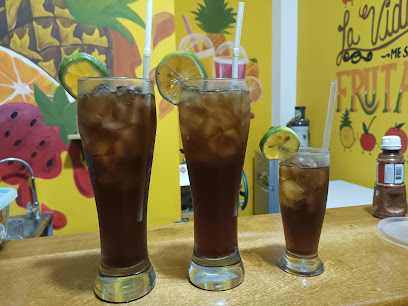
Free Time
Experience the vibrant nightlife of Macas at Free Time, a local bar offering refreshing drinks and a lively atmosphere for tourists.

Local Phrases
-
- HelloShukar
[SHOO-kar] - GoodbyeAriari
[AH-ree-AH-ree] - YesEe
[EE] - NoMan
[mahn] - Please/You're welcomePor favor
[pohr fah-BOHR] - Thank youGracias
[GRAH-syahs] - Excuse me/SorryDisculpe
[dees-KOOL-peh] - How are you?Kuyanakuy?
[koo-YAH-nah-koo-ee] - Fine. And you?Alli kani. Y usted?
[ah-LEE kah-NEE. ee oos-TEHD] - Do you speak English?Ingles yachaykunawan?
[EEN-gles yah-CHAHY-koo-NAH-wahn] - I don't understandMana rikurikchik
[MAH-nah ree-koo-reek-CHEEK]
- HelloShukar
-
- I'd like to see the menu, pleaseMenukuna kashanki, por favor
[meh-NOO-koo-nah kah-SHAHN-kee. pohr fah-BOHR] - I don't eat meatKarne mana mikushkani
[KAHR-neh MAH-nah mee-KOOSH-kah-nee] - Cheers!Salud!
[sah-LOOD] - I would like to pay, pleasePakarikunata rikurikchik, por favor
[pah-kah-ree-KOO-nah-tah ree-koo-reek-CHEEK. pohr fah-BOHR]
- I'd like to see the menu, pleaseMenukuna kashanki, por favor
-
- Help!Yachay!
[yah-CHAHY] - Go away!Rikurik!
[ree-koo-reek] - Call the Police!Pulisia shimikuy!
[poo-lee-SEE-ah shee-MEE-koo-ee] - Call a doctor!Unayta yachaykuy!
[oo-NAH-ee-tah yah-CHAHY-koo-ee] - I'm lostUkumanta mikushka
[oo-KOO-mahn-tah mee-KOOSH-kah] - I'm illUkumanta purik
[oo-KOO-mahn-tah poo-REEK]
- Help!Yachay!
-
- I'd like to buy...Kushikchikuy...
[koo-sheek-CHEE-koo-ee] - I'm just lookingShimita rikushka
[shee-MEE-tah ree-KOOSH-kah] - How much is it?Ima kantu?
[EE-mah KAHN-too] - That's too expensiveKushik
[KOO-sheek] - Can you lower the price?Tantayta mikuykunamanda?
[TAHN-tahy-tah mee-KOOY-koo-NAH-mahn-dah]
- I'd like to buy...Kushikchikuy...
-
- What time is it?Ishkay pachata?
[eesh-KAI pah-CHAH-tah] - It's one o'clockPacha kuti
[PAH-chah KOO-tee] - Half past (10)Iskay pachapi
[ees-KAI pah-CHAH-pee] - MorningPacha
[PAH-chah] - AfternoonInti
[EEN-tee] - EveningTuti
[TOO-tee] - YesterdayChaski
[CHAH-skee] - TodayKuta
[KOO-tah] - TomorrowKinti
[KEEN-tee] - 1Mesa
[MEH-sah] - 2Pisak
[PEE-sahk] - 3Kinsa
[KEEN-sah] - 4Tawa
[TAH-wah] - 5Phisqa
[FEES-kah] - 6Suyu
[SOO-yoo] - 7Qanchis
[KAN-chees] - 8Pusaq
[POO-sahk] - 9Iskay
[ees-KAI] - 10Chunka
[CHOON-kah]
- What time is it?Ishkay pachata?
-
- Where's a/the...?Maypi...
[MAY-pee] - What's the address?Ima chaskikuna?
[EE-mah CHAH-skee-KOO-nah] - Can you show me (on the map)?Mapa pakarikuyta mikuykunamanda?
[MAH-pah pah-kah-ree-KOOY-tah mee-KOOY-koo-NAH-mahn-dah] - When's the next (bus)?Maypi kasha (bus)?
[MAY-pee KAH-shah (boos)] - A ticket (to ....)Tikiti (.... )
[tee-KEE-tee]
- Where's a/the...?Maypi...
History of Macas
-
Long before the arrival of the Spanish, the area around Macas was inhabited by indigenous groups such as the Shuar and Achuar peoples. These communities thrived by utilizing the rich natural resources of the Amazon rainforest, practicing sustainable agriculture, hunting, and fishing. The Shuar, in particular, are known for their unique cultural practices, including the creation of 'tsantsas' or shrunken heads, a ritual believed to capture the spirit of a defeated enemy.
-
The Spanish expedition led by Captain José Villanueva Maldonado founded the city of Macas on August 15, 1538. Originally named 'Sevilla del Oro,' the city was established as a strategic point to exploit the rumored gold resources in the region. However, the interaction between the Spanish and indigenous communities was fraught with conflict, and the Spaniards' efforts to colonize and convert the local population met significant resistance.
-
During the colonial period, Macas served as a missionary hub. Jesuit missionaries arrived in the 17th century and established missions to evangelize the indigenous people. The Jesuits played a crucial role in documenting local languages and customs, though their efforts often led to upheaval in traditional Shuar and Achuar societies. The town remained relatively isolated, its development hampered by the challenging terrain and resistance from indigenous groups.
-
Ecuador's war of independence from Spanish rule, culminating in 1822, saw little direct conflict in Macas due to its remote location. However, the political changes post-independence influenced the region. The 19th and early 20th centuries saw gradual integration of Macas into the national framework, with slow but steady infrastructural development. New settlers arrived, and the town began to grow beyond its missionary roots, fostering a mix of cultures and traditions.
-
The mid-20th century marked significant changes for Macas with the construction of roads and improved communication networks. This period saw an influx of mestizo settlers and increased interaction with the rest of Ecuador. Economic activities expanded beyond subsistence and missionary endeavors to include agriculture, livestock, and small-scale commerce. Despite modern advancements, Macas has retained much of its indigenous heritage, making it a unique blend of old and new.
-
Today, Macas is known for its vibrant cultural diversity. The city serves as a gateway to the Amazon rainforest and is a center for exploring Shuar and Achuar cultures. Festivals, such as the annual 'Fiesta de Macas,' celebrate this rich heritage with traditional music, dance, and cuisine. The local markets offer a glimpse into the amalgamation of indigenous and mestizo lifestyles, with crafts, textiles, and foods that reflect the area's history and cultural evolution.
Macas Essentials
-
Macas is located in the Morona Santiago Province of Ecuador. The nearest major airport is Mariscal Sucre International Airport in Quito, approximately 350 kilometers away. From Quito, you can take a domestic flight to Macas Airport, which offers limited services. Alternatively, you can take a long-distance bus from Quito to Macas, a journey that typically takes around 8 to 10 hours, traveling through scenic Andean and Amazonian landscapes.
-
Macas is a relatively small city, so many attractions are within walking distance. Taxis are readily available and inexpensive; make sure to agree on a fare before your journey. There are also local buses that connect different parts of the city and surrounding areas. For more flexibility, consider renting a car to explore the beautiful Amazon Rainforest and Andean foothills at your own pace.
-
The official currency in Ecuador is the US Dollar (USD). Credit and debit cards are accepted in most hotels, restaurants, and larger stores in Macas, but it is advisable to carry cash for small purchases and in more remote areas. ATMs are available in the city, but it is wise to withdraw sufficient cash before heading into rural regions.
-
Macas is generally a safe destination for tourists, but it is important to take standard precautions. Avoid walking alone at night in unfamiliar areas and keep an eye on your belongings in crowded places. While Macas does not have specific high-crime areas targeting tourists, it is always best to stay vigilant and aware of your surroundings.
-
In case of emergency, dial 911 for immediate assistance. The local police station and medical facilities are available in Macas. It is recommended to have travel insurance that covers medical emergencies. For minor health issues, there are pharmacies in the city where you can purchase over-the-counter medications.
-
Fashion: Do dress comfortably and modestly. Lightweight clothing is recommended due to the tropical climate. Religion: Do respect local customs and traditions. When visiting churches or indigenous communities, dress conservatively. Public Transport: Do be respectful and patient when using local buses. Avoid eating or drinking on public transport. Greetings: Do greet people with a handshake or a friendly 'buenos días.' A smile goes a long way. Eating & Drinking: Do try local delicacies and accept food offerings graciously. Don’t refuse hospitality, as it is considered impolite.
-
To experience Macas like a local, visit the local markets where you can buy fresh produce and traditional Amazonian goods. Engage with locals, as they are often friendly and willing to share stories about their culture and lifestyle. Don’t miss visiting the Sangay National Park, a UNESCO World Heritage Site, known for its rich biodiversity. For a unique experience, explore the nearby indigenous Shuar communities, where you can learn about their traditions and way of life.
Trending Landmark in Macas
-
Parque Central De Macas
-
Parque Recreacional
-
Mirador del Quilamo
-
Catedral Santuario Católico Purísima de Macas
-
Hostal Casa Blanca
-
Hotel Manzana Real
-
Spa Savit
-
Hotel Heliconia
-
Hostal Morzua
-
Centro de Rescate Los Jaguares
-
MUNICIPAL GOVERNMENT OF CANTON MORONA
-
Monumento a los macabeos
-
Ministerio de Turismo de Morona Santiago
-
I Tur Macas
-
Travesía Jungle Agencia de Viajes & Operadora de turismo
Nearby Cities to Macas
-
Things To Do in Cuenca
-
Things To Do in Ambato
-
Things To Do in Tena
-
Things To Do in Guayaquil
-
Things To Do in Loja
-
Things To Do in Quito
-
Things To Do in Mindo
-
Things To Do in Otavalo
-
Things To Do in Ibarra
-
Things To Do in Salinas
-
Things To Do in Manta
-
Things To Do in Pasto
-
Things To Do in Piura
-
Things To Do in Chiclayo
-
Things To Do in Popayán





